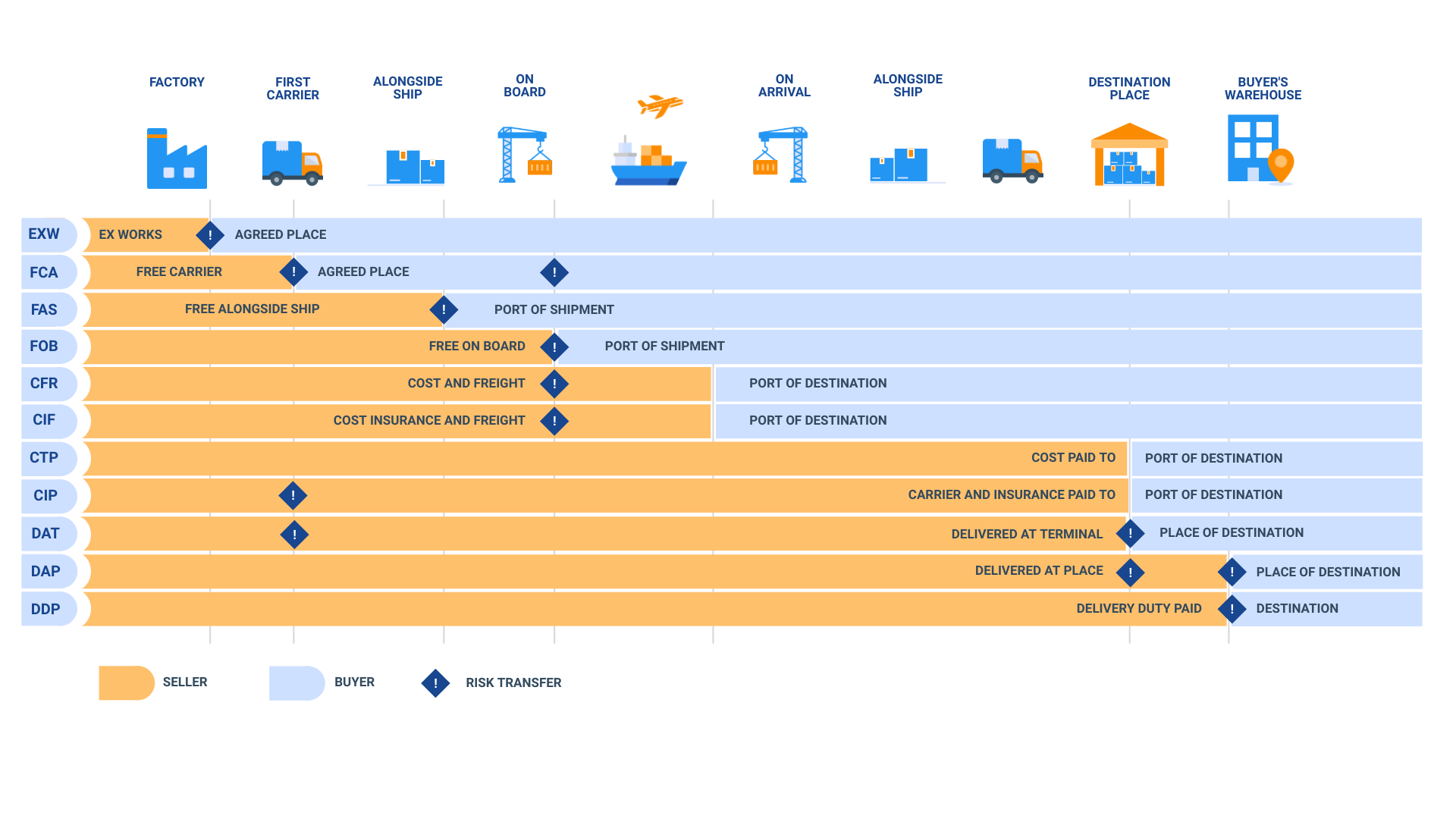Incoterms: A clear introduction
Learn about Incoterms and their role in international trade. Discover the responsibilities, costs, and risks defined by EXW, FOB, DAP, DDP, and more, ensuring smoother logistics and cost control.
.jpeg)

What are incoterms?
Incoterms (International Commercial Terms) are global trade agreements that define the responsibilities, costs, and risks shared between buyers and sellers during the shipping process. They clarify who is responsible for transportation, insurance, customs clearance, and other logistics-related tasks. Published by the International Chamber of Commerce (ICC), these terms are updated every ten years to reflect modern trade practices.
Choosing the right incoterm is critical in international trade. A poor choice can lead to unexpected costs or confusion over responsibilities. For example, using the CFR incoterm for a container shipment might result in high local charges at the destination port. By carefully selecting the right incoterm, you can save time, money, and avoid unnecessary stress.
Why are incoterms important in China?
In China, it is common for local freight forwarders to take on many responsibilities on behalf of the seller. This can lead to confusion, especially if agreements are not clearly documented. For instance, a DAP arrangement might effectively operate like EXW, with a Chinese forwarder offering additional services. Understanding these nuances is crucial when managing international shipments.
The most common incoterms explained
1. Ex-Works (EXW)
Under EXW, the seller’s only responsibility is to make the goods available at their premises. From there, the buyer assumes all risks, costs, and logistics, including transportation, insurance, and customs clearance. EXW is ideal for buyers who want complete control over the shipping process.
2. Free On Board (FOB)
FOB is commonly used for sea freight. The seller is responsible for loading the goods onto the ship and handling export documentation. Once the goods are on board, the buyer assumes responsibility for insurance, further transport costs, and import customs clearance. This term is popular for international sea shipments due to its clear division of responsibilities.
3. Free Carrier (FCA)
FCA requires the seller to deliver the goods to a carrier designated by the buyer at an agreed location. The seller also handles export documentation and permits. Responsibility and risk transfer to the buyer once the goods are delivered to the specified location. FCA is a flexible incoterm suitable for various transport modes.
4. Delivered At Place (DAP)
With DAP, the seller is responsible for delivering the goods to the buyer’s specified destination. The buyer assumes responsibility once the goods are ready for unloading. The buyer also handles customs clearance and pays import duties and taxes. In China, local forwarders often take on the seller’s responsibilities, which can cause confusion if expectations are not clearly defined.
5. Delivered Duty Paid (DDP)
DDP places the maximum responsibility on the seller, who manages the entire shipping process, including customs clearance, import duties, and taxes. The buyer has minimal obligations until the goods are delivered to the specified destination. In China, DDP is often executed by local agents acting on behalf of the seller, which can lead to ambiguity about the exact terms and conditions.

Conclusion
Understanding incoterms is vital for controlling costs and minimizing risks in international trade. Choosing the right incoterm based on your specific shipping needs ensures clarity and efficiency throughout the logistics process.
If you want to learn more about how incoterms can optimize your transport strategy or need assistance with your shipment, contact us. Our team is here to help!
Related content
Short section heading goes here
Suspendisse varius enim in eros elementum tristique.

.jpeg)
